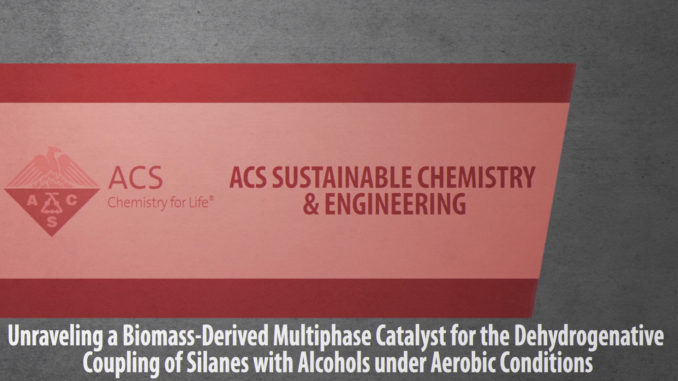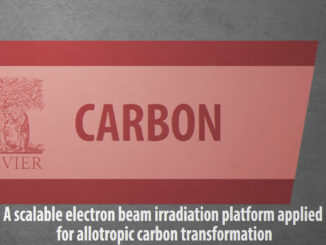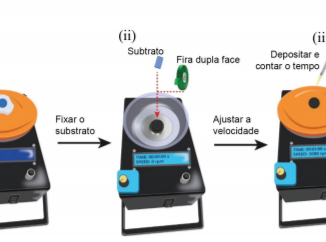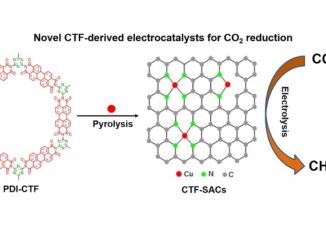
Unraveling a Biomass-Derived Multiphase Catalyst for the Dehydrogenative Coupling of Silanes with Alcohols under Aerobic Conditions
Abstract: Herein, a novel silver and chromium nanostructured N-doped carbonaceous material has been synthesized by a biomass-annealing approach using readily available chitosan as a raw material. The resulting catalyst AgCr@CN-800 has been applied for the dehydrogenative coupling reaction of various silanes with different alcohols to obtain the corresponding silyl ethers under aerobic and mild conditions. Besides excellent activity and selectivity, the as-prepared catalyst exhibits good stability and reusability. Characterization by X-ray diffraction, X-ray photoelectron spectroscopy, inductively coupled plasma mass spectrometry, and high-resolution transmission electron microscopy (TEM) in combination with careful examination of the structure with Cs-corrected high-angle annular dark-field scanning TEM revealed that the catalyst AgCr@CN-800 comprises Ag- and CrN-aggregated particles, as well as highly dispersed Ag–Nx and Cr–Nx sites embedded in N-doped graphitic structures. A comparative catalytic study using structure-related catalysts in combination with acid-leaching treatments has shown that the most active species are the Ag particles and that their activity is boosted by the presence of Cr-derived species. By in situ Raman spectroscopy experiments, it has been found that the dehydrogenative coupling of silanes with alcohols in the presence of catalyst AgCr@CN-800 takes place through an oxygen-assisted mechanism.
Author(s): Sorribes, I.; Ventura-Espinosa, D.; Assis, M.; Martin, S.; Concepcion, P.; Bettini, J.; Longo, E.; Mata, J. A.; Andres, J.
ACS Sustainable Chem. Eng.
Published: February 8, 2021
DOI: https://doi.org/10.1021/acssuschemeng.0c08953
CDMF
The CDMF, hosted at the Federal University of São Carlos (UFSCar), is one of the Research, Innovation and Dissemination Centers (RIDC) supported by the São Paulo State Research Support Foundation (Fapesp), and also receives investment from the National Council Scientific and Technological Development (CNPq), from the National Institute of Science and Technology of Materials in Nanotechnology (INCTMN).




